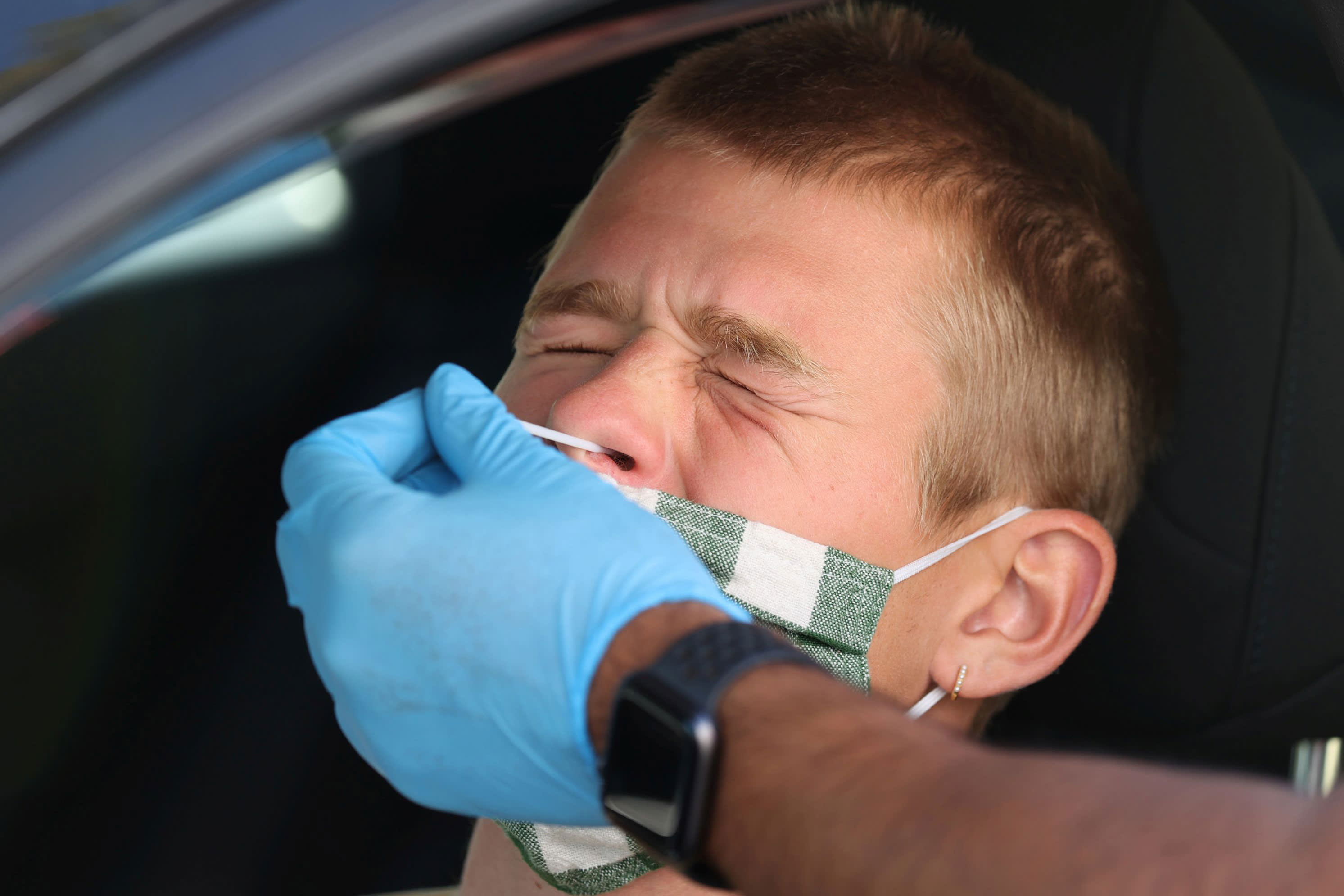Hugo Boserup, 22, is given a PCR coronavirus test, as the global outbreak of the coronavirus disease (COVID-19) continues, in Malibu, California, December 2, 2020.
Lucy Nicholson | Reuters
The so-called delta variant of the coronavirus now accounts for nearly 10 percent of new cases in the United States, the Centers for Disease Control and Prevention said Tuesday.
The agency on Monday declared the variant, which was first detected in India, a “variant of concern,” a designation given when there is increased evidence of factors such as transmissibility or severity or reduced effectiveness of vaccines or treatments.
The change in classification “is based on mounting evidence that the Delta variant spreads more easily and causes more severe cases when compared to other variants, including B.1.1.7 (Alpha),” the CDC said in a statement to NBC News. The alpha variant was first detected in the United Kingdom, and in April, it became the dominant strain in the U.S.
Read more from NBC News
More evidence suggests Covid was in U.S. by Christmas 2019
California reopens, says goodbye to most Covid rules
Two doses of vaccine highly effective against Delta variant, U.K. officials say
Data for the two-week period ending June 5 predicts that the delta variant accounts for 9.9 percent of cases in the U.S., the CDC said. For the two-week period ending May 22, that figure was 2.7 percent.
Still, there is evidence that the vaccines in use in the U.S. are effective against this and other circulating variants. Two doses are required for the Moderna and Pfizer–BioNTech vaccines, while the Johnson & Johnson vaccine requires just one.
Public Health England reported Monday that two doses of the Pfizer vaccine are highly effective — 96 percent — at preventing hospitalization from the variant. Still, the U.K. is seeing rapid spread of delta, leading Prime Minister Boris Johnson to delay the country’s reopening by a month, to July 19.
Because the delta variant is able to spread from person to person more easily, experts say those who have not had the vaccine remain especially vulnerable.
“This is the most dangerous phase of the pandemic coming up for people who are unvaccinated,” said Dr. Gregory Poland, director of the Mayo Clinic’s Vaccine Research Group in Rochester, Minnesota.
As of Tuesday, just over 54 percent of adults in the U.S. had been fully vaccinated, and nearly 65 percent had received at least one dose.


